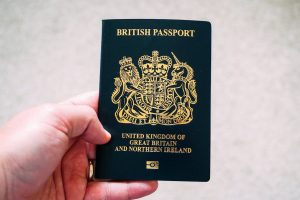In HC-997, a New British Immigration Rules laid before Parliament on July 1, 2025, the UK government has made far-reaching changes to the immigration system. These changes will be implemented in the UK. One of the largest UK immigration policy changes of the past few years is embodied in these changes.In New British Immigration Rules, The Home Office aims to reduce reliance on low-skilled foreign workers, reboot pathways for future economic development, and focus the system on high-skill, high-pay migration. The main requirements of HC-997 are explained in detail below.
Skilled Worker Salary
The minimum salary requirements for applicants for a skilled worker visa have been increased through ministerial action.
- The normal minimum salary for skilled worker visas will increase from £38,700 to £41,700 on July 22 2025.
- Candidates must earn at least £37,500 with a relevant PhD degree to be qualified.
- For recruits (below 26 or recent UK graduates) and STEM PhD graduates, the minimum salary will be £33,400.
The statistics from the 2024 Annual Survey of Hours and Earnings (ASHE) formed the basis of the government’s updated standards. The Home Office confirmed that grace periods and transitional protections will not be applied. Consequently, all requests submitted after the new rules take effect must meet these standards.
This change encourages companies to offer competitive wages, demonstrating the government’s intention to align immigration with the domestic wage framework.
Skill-Level Requirement
Traditionally, the majority of sponsors have used the intra-company transfer route;
- However, as of July 22, 2025, all eligible roles must be at RQF Level 6 or higher, which is the UK equivalent of a bachelor’s degree.
- In response to the lack of quantitative targets, the Home Office has revised the Skilled Worker route to prioritize degree-level occupations.
- About 180 professions (or 111, depending on the classification) that were previously eligible at RQF Levels 3-5 have been dropped by the Home Office.
Several technical, administrative, and managerial jobs that the government no longer wishes to fill through foreign recruitment are among those that are no longer eligible.
The government has allowed those who are already working in the UK on a sponsored visa as skilled workers to remain in their current position. This is only a temporary concession, however, and the Home Office plans to review these cases later.
Overseas Recruitment of Care Workers
HC-997 radically changes the dependence of the health and care sector on foreign recruitment.
- From July 22, 2025, employers will no longer be able to recruit care workers (SOC 6135) and senior care workers (SOC 6136) on the skilled route from abroad.
- Provided they have been working for their current sponsor for at least three months, employees who are already in the UK on another visa can switch to these care occupations up until July 22, 2028.
The government established this policy to reduce the UK’s dependency on importing care workers from overseas. To take up these vital roles, ministers have encouraged companies to focus on recruiting and training local workers.
Problems regarding staffing have been raised by providers within the care industry in response to this policy shift. To regain the balance between immigration and the home labour market, the administration argues that this is a necessary measure.
Shortage Occupation List
The Home Office has created two new interim lists to manage any short-term shortages caused by these reforms:
- Some RQF 3–5 jobs that have been designated as having a shortage of labour are included in the Expanded Immigration Salary List.
- Occupations that contribute to the UK’s Modern Industrial Strategy are covered in the Temporary Shortage List.
Ministers will study both lists prior to deciding whether to extend or cancel them, and both will remain valid until December 31, 2026. Unlike the regular skilled worker route, the government has made it clear that the migrants who take up these jobs are not allowed to bring dependents.
As it seeks its overarching goal of a high-wage economy, such lists indicate the government’s effort to provide targeted, time-limited solutions to some sectoral needs.
Afghan ARAP and ACRS Schemes
The government moved quickly to close two major resettlement schemes linked with Afghanistan:
- On July 1 2025, at 3 p.m. BST, the Afghan Relocations and Assistance Policy (ARAP) closed to new principal applicants.
- Also, formally closed is the Afghan Citizens Resettlement Scheme (ACRS).
Those who applied for ARAP before the cut-off remain eligible, and their relatives can continue to apply under the same rules. These closures follow after the UK’s principal resettlement commitments have been met, the government says.
This move is a broader tightening of migrant routes and seals an important chapter in the UK’s humanitarian response to the Afghan crisis.
Home Office Updation
The Home Office Amends a Few Parts of the Regulations. Aside from the major improvements, HC-997 includes a variety of technical and policy amendments:
- Neonatal care leave is also now accepted by the Immigration Rules as a valid form of authorized absence for sponsored workers. The new statutory newborn leave benefit introduced in April 2025 is now aligned with immigration policy following this change.
- To assist applicants and sponsors in comprehending the framework of law, the government has revised paragraph references, corrected various draughting errors, and enhanced consistency across the rules.
The smooth functioning of the immigration system and its adherence to contemporary employment rights are ensured through these technical changes.
Employers and Migrants
By HC-997 New British Immigration Rules, the UK government has demonstrated its shift towards high-skilled migration and increasing its workforce.
- Employers will need to review their personnel planning, recruitment strategies, and sponsorship licenses to meet the new wage and skill-level thresholds.
- To get a skilled worker visa, migrants must ensure that their applications meet the latest qualifying criteria.
- Social care and other sectors that previously relied primarily on employing less trained staff from overseas are now required to pay for local training and development schemes.
Compliance issues, staff shortages, or sponsorship refusals may result from a refusal to adapt to these changes.
New British Immigration Rules
The UK government has reformulated the future of work-based immigration with HC-997. High-skill, high-wage employment has been prioritized by ministers, who have also made admission more stringent and removed routes that do not serve national priorities. Employers and migrants alike must act now and prepare for these significant changes, which come into full effect on July 22, 2025.





